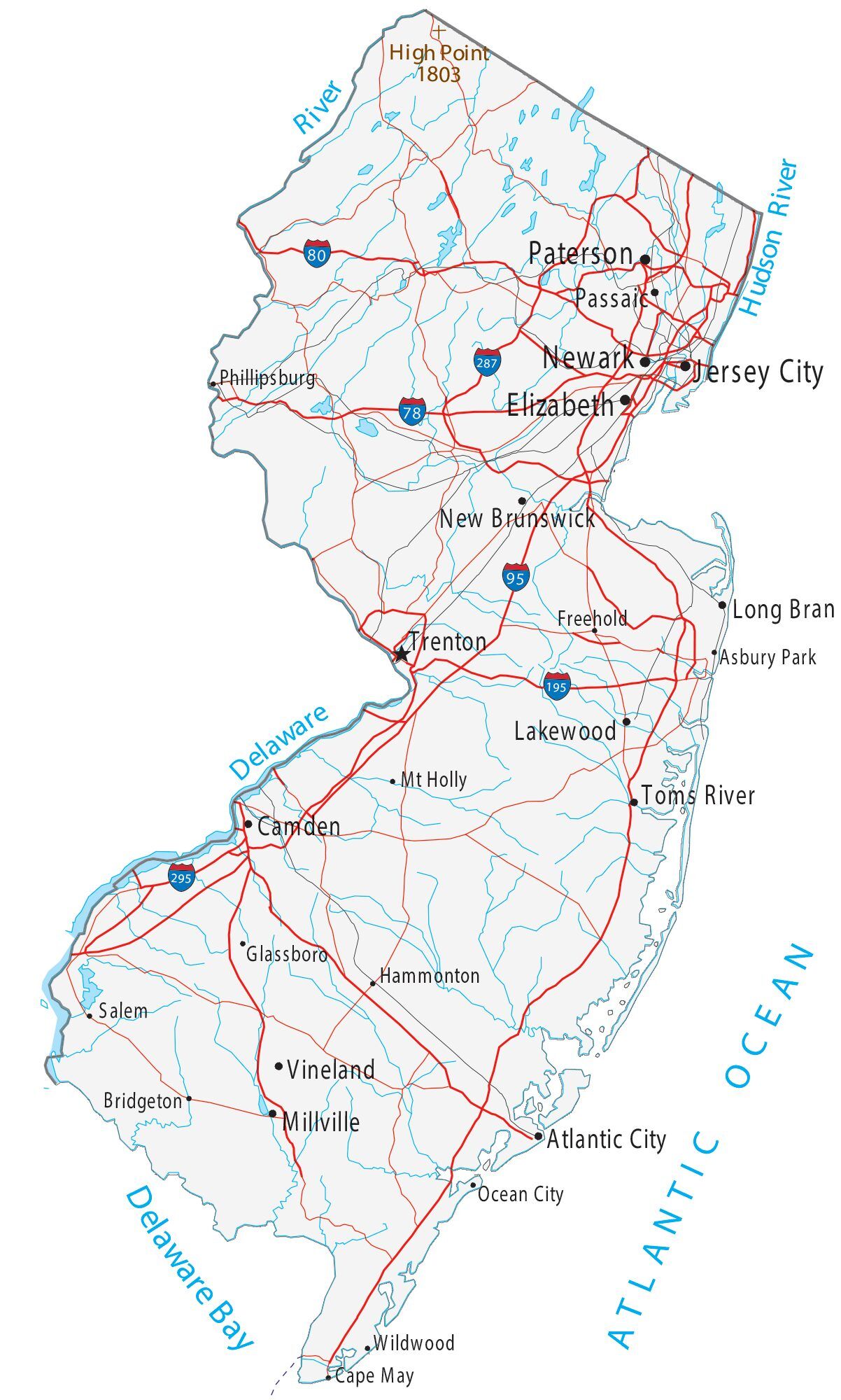Septic systems play a crucial role in wastewater management, especially in areas without centralized sewage systems. In New Jersey, following the septic code ensures public health and environmental protection. Understanding the New Jersey Septic Code helps homeowners, contractors, and property managers comply with state regulations. This article will cover installation permits, tank sizing, wastewater disposal, maintenance, costs, compliance guidelines, and more to help you navigate the requirements seamlessly.
Table of Contents
- State-Specific Regulations Information
- Compliance Information
- Cost Information
- Local Resources & Contact Information
- Supportive Resources
- FAQs About Septic Systems in New Jersey
State-Specific Regulations Information
Installation Permits
Before you install a septic system in New Jersey, you need an installation permit from the local health department. A permit ensures that the installation meets New Jersey’s wastewater management laws and sewage disposal standards.
- Permit Requirements:
Installing a septic system requires approval from the New Jersey Department of Environmental Protection and local health departments. Homeowners and contractors must submit detailed plans outlining the system layout, tank size, and placement. - Permit Costs:
Permit costs vary depending on the county and system size. Typically, fees range between $200 and $1,500. Factors such as system complexity, location, and inspection fees can also impact costs. Be sure to contact your local health department to get accurate estimates.
Septic Tank Size and Placement
The New Jersey septic code outlines specific guidelines for tank size and placement to ensure proper wastewater treatment and environmental safety. Adhering to these guidelines prevents issues such as overflow, contamination, and system failure.
- Tank Size Requirements:
The size of the septic tank depends on the number of bedrooms in a home. For example, a 1- to 2-bedroom house typically requires a 1,000-gallon tank, while larger homes might need a 1,500-gallon tank or more.- For compliance with New Jersey wastewater management laws, tank sizes must be approved by local health departments to ensure adequate wastewater treatment capacity.
- Drain Field Placement:
The drain field must be placed in an area with appropriate soil conditions and sufficient space. New Jersey guidelines stipulate a minimum distance from wells, property lines, and water sources to prevent contamination.- The drain field should have proper soil depth and permeability to facilitate wastewater absorption. Placement must also adhere to New Jersey sewage disposal standards to protect nearby groundwater and surface water.
Wastewater Disposal
New Jersey’s wastewater disposal guidelines focus on maintaining public health and safeguarding the environment. Adhering to New Jersey wastewater rules ensures that wastewater treatment is handled in an environmentally responsible manner.
- On-Site Sewage Treatment Systems:
New Jersey encourages the use of on-site sewage treatment systems (OSTS) for areas without centralized sewage facilities. These systems must meet New Jersey environmental quality standards and wastewater management regulations. - Wastewater Discharge Restrictions:
Wastewater disposal must comply with state and federal environmental protection guidelines. Proper discharge prevents contamination of rivers, streams, and groundwater. Failure to meet these standards can result in severe penalties and environmental damage.
Maintenance and Pumping
Regular maintenance and septic system pumping are crucial for keeping the system functional and compliant with New Jersey health department guidelines.
- Pumping Frequency:
The recommended pumping schedule depends on household size and system usage. For most homes, septic systems should be pumped every 2 to 3 years. - Maintenance Requirements:
Regular inspections and maintenance help identify issues early. New Jersey health department guidelines recommend professional inspections every few years to ensure system integrity.- Maintenance tasks include cleaning out solids, inspecting pipes, and ensuring the drain field is free of obstructions. Proper maintenance extends the lifespan of your system and prevents costly repairs.
Compliance Information
Potential Fines and Penalties
Not adhering to the New Jersey septic code can result in legal penalties and fines. These penalties aim to protect public health and the environment by enforcing wastewater management standards.
- Fines for Non-Compliance:
Failure to obtain necessary permits, improper installation, or non-compliance with wastewater disposal rules can result in fines ranging from $500 to $10,000.- In some cases, ongoing violations can lead to legal action and system shutdown until compliance is restored.
- Penalties also cover failure to follow New Jersey health department guidelines for septic maintenance and inspections.
- Legal Consequences:
Legal consequences extend to property owners and contractors. Violators may face lawsuits, environmental cleanup costs, and long-term liabilities.- Compliance with New Jersey wastewater management laws ensures that your system operates efficiently and within legal constraints.
Environmental Protections
New Jersey’s environmental protections are designed to prevent water contamination and safeguard natural resources. Adhering to New Jersey environmental quality standards is not only about compliance but also about protecting ecosystems.
- Groundwater Protection Measures:
New Jersey wastewater management regulations prioritize groundwater protection. Proper drain field placement and wastewater treatment prevent the contamination of drinking water sources.- Septic systems must meet stringent guidelines to ensure that no harmful contaminants seep into groundwater.
- State Regulations for Environmental Safety:
New Jersey’s environmental protection agencies enforce regulations that require homeowners and contractors to comply with wastewater disposal and sewage treatment standards. These measures protect nearby rivers, lakes, and streams from contamination.
Cost Information
Typical Costs for Septic Services in New Jersey
Understanding the costs associated with septic system services in New Jersey can help homeowners budget for necessary expenses. Costs vary depending on system size, location, and service requirements.
- Permit Fees:
As mentioned earlier, permit fees can range from $200 to $1,500, depending on your county and system size. Local health departments may also charge inspection fees. - Pumping Costs:
The cost of professional septic system pumping in New Jersey ranges from $300 to $600. The price may vary depending on the tank size and accessibility. - Installation Estimates:
Installing a new septic system typically costs between $3,000 and $10,000. The cost depends on system complexity, soil conditions, and the size of the system required.- Factors like drain field placement and local regulations can also impact installation estimates.
- Maintenance Costs:
Regular maintenance services generally cost around $250 to $500. A comprehensive inspection and cleaning service ensures your system remains compliant with New Jersey health department guidelines.
Local Resources & Contact Information
State Agencies Responsible for Septic Systems
Several New Jersey agencies oversee septic system installation, maintenance, and compliance. Here’s where you can find the necessary information:
- New Jersey Department of Environmental Protection (NJDEP):
The NJDEP oversees wastewater management, environmental protection, and septic system regulations across the state.- Website: www.nj.gov/dep
- Contact your local NJDEP office for county-specific guidelines and permits.
- Local Health Departments:
Each New Jersey county has a local health department responsible for septic installations and inspections.- Reach out to your local health department to get customized guidelines and permit information.
Supportive Resources
Government Websites
- New Jersey Health Department:
The New Jersey Health Department website offers resources on septic system guidelines, permits, and maintenance. - Environmental Protection Resources:
Visit the NJDEP website for detailed information on wastewater management, sewage disposal standards, and compliance requirements.
Certified Septic Service Providers
- Many New Jersey septic service companies offer professional installation, maintenance, and inspection services.
- Websites like Yelp, Better Business Bureau (BBB), and local service directories can help you find trusted, certified providers.
Downloadable Guides & Handbooks
- Look for downloadable guides and checklists from New Jersey health department websites.
- These resources often include step-by-step instructions for inspections, maintenance schedules, and compliance checklists to ensure your system meets state guidelines.
Conclusion
Understanding the New Jersey Septic Code is essential for maintaining a compliant and environmentally responsible septic system. Compliance with New Jersey wastewater rules, permit guidelines, and environmental protection standards safeguards public health and the environment. Regular maintenance, adherence to permit regulations, and proper system placement help homeowners prevent costly repairs and legal penalties. By following New Jersey’s septic code and consulting local health departments and environmental agencies, you can ensure your system’s efficiency and compliance for years to come.
FAQs About Septic Systems in New Jersey
Do I Need a Permit to Install a Septic System in New Jersey?
Yes, installing a septic system in New Jersey requires an installation permit. These permits ensure compliance with New Jersey Department of Environmental Protection (NJDEP) regulations and local wastewater management guidelines. Property owners must submit their project plans for review by the local health department. Permit costs can vary depending on factors such as system size, location, and scope of work NJDEP New Jersey Official Website.
H3: What Are the Regulations for Septic Tank Size and Drain Field Placement in New Jersey?
New Jersey guidelines specify the size and placement of septic tanks and drain fields to meet N.J.A.C. 7:9A-8.2(c) regulations. Tank sizes are determined by the number of bedrooms in a home. For example, a 1- or 2-bedroom house typically requires a 1,000-gallon tank, while larger households may need larger systems. Additionally, the placement of drain fields must comply with minimum setback requirements from wells, property lines, and natural water sources to prevent contamination NJDEP New Jersey Official Website.
For placement and sizing details, refer to: NJDEP Environmental Quality Standards NJDEP.
H3: What Are the Wastewater Disposal Rules in New Jersey?
Wastewater disposal in New Jersey must follow strict wastewater management guidelines outlined by state regulations. These guidelines aim to safeguard the environment and public health. Wastewater systems must comply with N.J.A.C. 7:9A, ensuring proper pathogen removal, nutrient absorption, and minimal contamination risks to surface and groundwater.
For more information on wastewater disposal regulations, check: NJDEP Inspection Guidance.
H3: How Often Should I Pump My Septic Tank in New Jersey?
Regular maintenance and pumping are necessary to keep your septic system functioning efficiently. In New Jersey, septic tank pumping is generally recommended every 3 to 5 years, depending on household size and tank capacity. Systems with garbage disposals require more frequent attention, as the added waste necessitates a larger pumping schedule to prevent clogs and system failure
For septic maintenance details, visit: Rutgers Cooperative Extension Fact Sheet New Jersey Official Website.
H3: What Are the Penalties for Not Complying with Septic Regulations in New Jersey?
Failing to adhere to New Jersey septic system regulations can result in significant penalties. Under N.J.A.C. 7:9A, property owners and contractors face fines and corrective actions if they fail to meet permit, installation, or wastewater disposal requirements. These penalties may include legal action, costly repairs, and environmental cleanup expenses
For compliance guidelines and regulations, refer to: NJDEP.
H3: Which Agencies Should I Contact for Septic System Information in New Jersey?
If you have questions about septic installation, maintenance, or compliance in New Jersey, you should contact the New Jersey Department of Environmental Protection (NJDEP) or your local health department. These agencies oversee the installation, inspection, and maintenance of septic systems to comply with state and local wastewater management laws NJDEP.
Official contact information and resources are available at: NJDEP Wastewater
Directory | Washington Septic Service Providers | Part 2
Directory | Washington Septic Service Providers | Part 1
DIY Repairs Are Always Cheaper
Septic Regulations in Rural Areas: Essential Guide for Rural Property Owners
The Role of Perforated Pipes in Drain Fields
What Happens During a Pumping Service?







